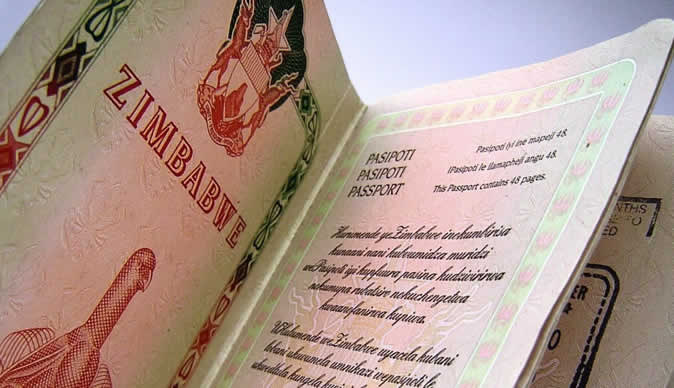A group of Zimbabweans in South Africa recently took that government to court, asking them to declare them permanent residents as their Zimbabwe Exemption Permits expire on December 31, 2021.
The group falls under the Zimbabwean Exemption Permit Holders Association, which reportedly represents about 250 000 Zimbabweans, asked the Gauteng High Court to direct the Minister of Home Affairs to issue them with South African ID documents on the grounds that they are permanent residents in terms of the Immigration Act read together with the Identification Act.
They also asked the court to review and set aside the decision by Home Affairs not to renew residency permits “knowing that the holders of the permit have known no other home besides South Africa for more than 10 years”.
But the Chairperson of the Zimbabwe Community in South Africa, Ngabutho Nicholas Mabhena, thinks this is not a wise move, as they anticipated an announcement from the government anytime from now to renew the exemption permits.
“We respect the decision by those that have taken the South African government to court even though we do not agree with them because the timing is wrong,” he said.
Mabhena said the documentation of Zimbabweans in South Africa has always been a product of negotiations and this matter could have been resolved in the same way.
“We have been negotiating since 2002 when the South African government agreed to issue Zimbabweans with asylum documents. In 2010, Zimbabweans were issued with special permits which were renewed in 2014 and 2017. Now they are to expire on December 31, 2021. All over these years, it has been through negotiations for the South African government to renew these permits,” he said.
“We don’t think it’s a wise move at this late stage when we anticipate that an announcement is going to be made soon, for anyone to approach the courts. They should have waited for the South African government to make an announcement on the future of these permits before considering going to court.”
Mabhena, also a member of the executive committee of the African Diaspora Forum (ADF), a pro-migrant organisation, explained that the documentation of Zimbabwe by South African authorities has always been through negotiation.
“We have not taken the government to court since 2002 when the documentation negotiations started. We note that when Zimbabweans came in the late 1970s to early 1980s, they did not have access to work permits. That’s why there were negotiations in 1995 when the South African government granted an amnesty to all SADC nationals who had fraudulently acquired authentic IDs,” he said.
“These individuals were granted permanent residency and those who benefitted carried South African IDs which listed one’s place of birth. Through negotiations, there was an amnesty that people would not be prosecuted for fraudulently acquiring those ID cards although others did not return them for some reason or another.”
Mabhena noted that Zimbabweans continued applying for South African IDs because they could not qualify for other permits, as provided for in the Immigration Act, in terms of the specific skills required for work permits.
“Post 2000, when the Movement for Democratic Change was formed and violence directed at its members and other civic society members, many activists left Zimbabwe to South Africa and were prone to deportation. We had to negotiate and from May 2001, the South African government agreed that Zimbabweans seeking asylum would be granted,” he said.
“We, however, ran into problems, as Zimbabweans who had South African IDs also applied for asylum yet they were not running away from political persecution. This was presented when taking fingerprints as it would show someone already had an ID. Zimbabweans said they wanted asylum so it would be easier to pass through numerous roadblock and not explain how they acquired South African IDs. We then had to negotiate with the South African government that there were two categories of asylum – victims of political violence and those using asylum for work as they had no work permits.”
Mabhena said after negotiations, the South African government considered permits to people with lesser skills.
“In 2010, special permits were granted to Zimbabwe, then Lesotho. Swaziland was to be next but we don’t know what happened,” he said.
“South Africa faced serious problem in 2010 as it was accused of becoming a playground for people that promote terrorist attacks, as it was easier for any person to come to South Africa and apply for a passport and travel as a South African. Zimbabweans and other migrants, applied for South African passports then travelled to the United Kingdom where on arrival, somehow disposed of those passports,” he said.
In response to that, Mabhena said South Africa responded by placing a port of entry at Beitbridge where they seized South African passports from anyone going there from Zimbabwe.
“5 000 passports were seized between January and February 2010 from those who failed to provide evidence that were South African by birth or name schools they attended or where they grew up,” he noted.
“Many Zimbabweans were arrested and were asked to pay R3 000 or jailed for three months. We intervened with the South African government and asked these Zimbabweans to be granted amnesty from prosecution. We also negotiated that those economic migrants with asylum submit those and apply for the Documentation Zimbabwe Project (DZP). These were special permits where any person who had a valid Zimbabwean passport but was not documented would be free to apply.”

